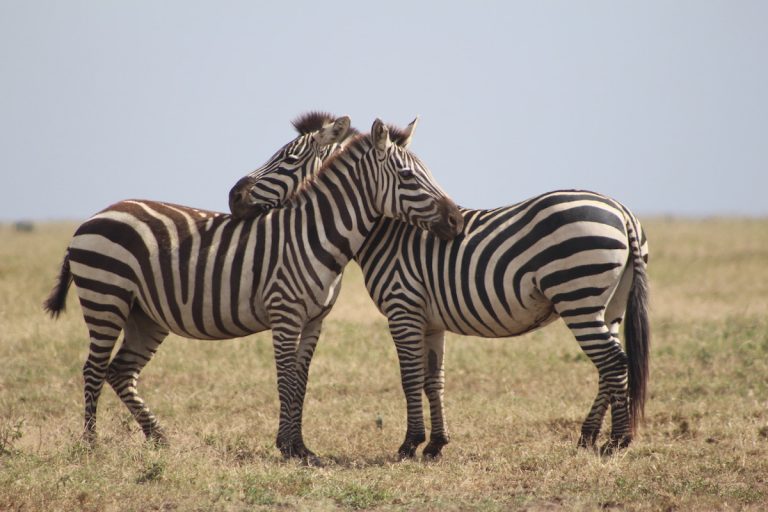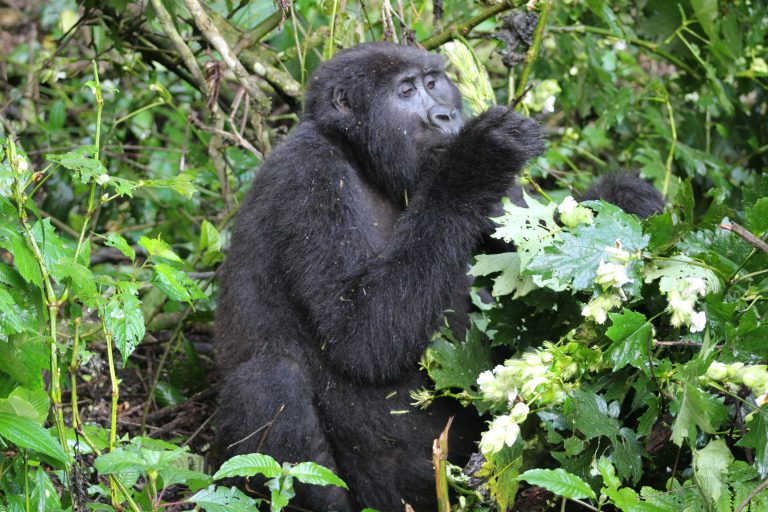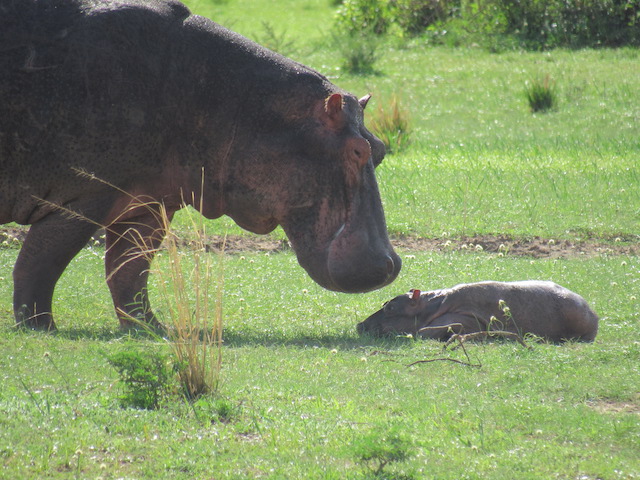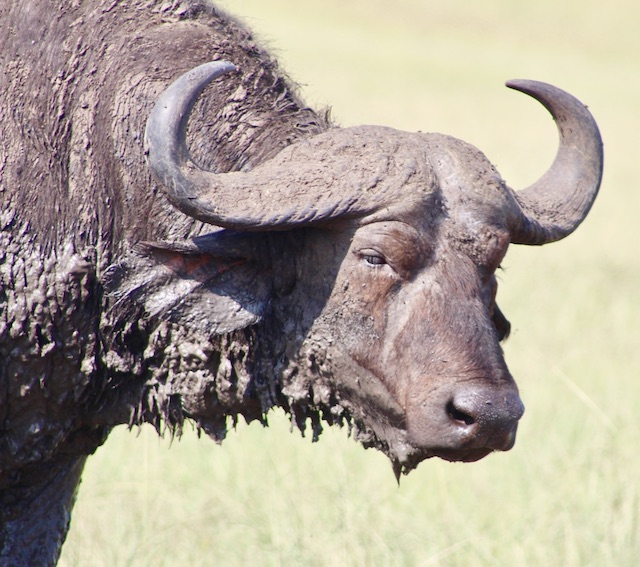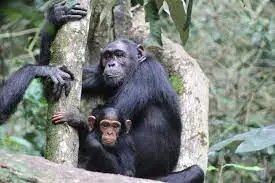 Kibale National Park is an attractive park in Uganda. It is has varied tracts of tropical rain forest and a multiplicity of animals. The annual temperature ranges between 14-27C and is generally cool. It is the ultimate place for chimpanzee trekking in Uganda.
Kibale National Park is an attractive park in Uganda. It is has varied tracts of tropical rain forest and a multiplicity of animals. The annual temperature ranges between 14-27C and is generally cool. It is the ultimate place for chimpanzee trekking in Uganda.
It is known as the “primate capital of East Africa” with 13 different primate species. Kibale forest is home to more than 1,450 chimpanzee protected within its borders of 795km2. It is by far the best place to see Chimps in East Africa. The chimpanzees have been habituated for over 30 years giving you a chance to see the great apes in their natural environment. Children have to be 12 years and above to track the Chimpanzees. If younger they can opt to see chimpanzees at Ngamba Island Chimpanzee Sanctuary .
The forest’s varied altitude supports different habitats like woodland, Savannah, wet tropical forest and semi-deciduous dry tropical forest.
Wildlife in Kibale National Park
Animals
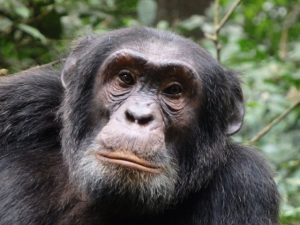 The mammal species in Kibale forest are estimated at 60 and include leopards, Duikers, Forest Elephants, Forest Buffaloes, Golden cats, Warthogs, Bush Pigs etc. Generally animals found in the forest are shy and more aggressive maybe because of the vegetation and because fewer people visit the parks compared to savannah parks that are usually teeming with people.
The mammal species in Kibale forest are estimated at 60 and include leopards, Duikers, Forest Elephants, Forest Buffaloes, Golden cats, Warthogs, Bush Pigs etc. Generally animals found in the forest are shy and more aggressive maybe because of the vegetation and because fewer people visit the parks compared to savannah parks that are usually teeming with people.
The main attraction in the forest is chimpanzee trekking and chimpanzee habituation experience. The park is host to 13 primate species that include; bush babies, L’Hoest’s monkey, red colobus monkey, red-tailed monkey, black-and-white colobus monkey, grey-cheeked mangabey, olive baboon, blue monkey, Vervet monkeys and Potto.
Birds
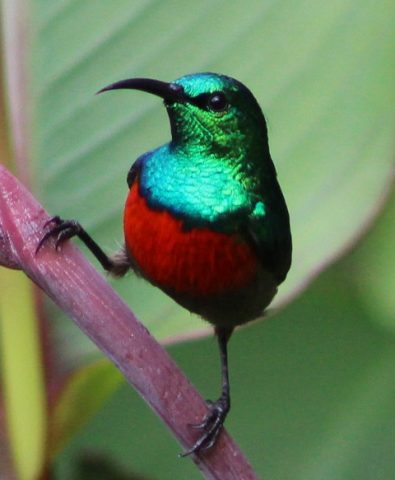 Kibale forest is a prime birding spot and is home to over 375 bird species including six endemics to the Albertine Rift area. It is an excellent birding spot because of its varied habitat and dense vegetation that give birds a safe haven and plenty of food to feed on. Birding usually happens early in the morning and late evenings for the nocturnal birds.
Kibale forest is a prime birding spot and is home to over 375 bird species including six endemics to the Albertine Rift area. It is an excellent birding spot because of its varied habitat and dense vegetation that give birds a safe haven and plenty of food to feed on. Birding usually happens early in the morning and late evenings for the nocturnal birds.
Green breasted Pitta is one of the main attraction for birders visiting the park. Other bird species to look out for include; Red-chested owlet, Purple breasted sunbird, African Grey Parrot, Blue-breasted Kingfisher, Crowned Eagle, little Greenbul, Black Bee eater, White-naped pigeon, andScaly-breasted Illadopsis,Western bronze-napped Pigeon, Nahan’s Francolin, Yellow-throated Nicator, White-headed Wood-hoopoe, Red Headed malimbe , Yellow-spotted barbet , Dusky-blue Flycatcher etc.
Amphibians and Butterflies in Kibale National Park
The park is home to over 250 species of butterflies, several reptiles, and amphibians. You need to be keen to spot the reptiles and amphibians but the butterflies will be ‘all over the place’. As you hike through the forest in search of chimpanzees and other primates, enjoy sighting the different colourful butterflies.
Safaris and Activities in Kibale National Park
Chimpanzee Trekking in Kibale National Park
Chimpanzees are the prime attraction for many visiting Kibale national park. Chimpanzee trekking has been happening in Kibale forest since 1993. Chimpanzee trekking is done twice a day i.e. early morning at 8am and afternoon at 2pm, therefore you have an opportunity to choose which time is conducive for you but morning is highly recommended. You will meet for briefing from the ranger guide before the trek starts to hear and learn about the expectations while in the forest.
Trackers go before you and search for where the chimps nested the previous night and they then relay this information to your ranger guide to lead you towards that location – remember the Chimps keep moving so they give the rangers information on the go. You need to be ready to walk long distances and carry along rain poncho because in a tropical forest it can rain anytime. Other items to carry include; long sleeved shirt and pants, comfortable waterproof boots, binoculars, camera, insect repellant.
Chimpanzee Habituation Experience in Kibale National Park
Chimpanzees are habituated over a period of 2 years before they get used to humans and then chimp trekking can begin. The CHEX (Chimpanzee habituation experience) happens every morning, a visitor goes along with the rangers and research staff and watch chimps leaving their overnight nests before they start their daily activities of feeding, hunting, copulating, breastfeeding, patrolling and resting. When this process is repeated over time, the Chimps get used to humans and that family is included on those that can be tracked.
Bird watching in Kibale National Park
Birding in Kibale forest is a rewarding experience. Bird walks start at 6.30am every morning but you need to book early so the rangers are expecting you. The park is home to a variety of birds including the Albertine rift endemics. Morning focus for any birder in Kibale forest is to search for the Green breasted pitta. Other species includeGrey-throated FlycatcherGrey-winged Robin, Crested Flycatcher,Blue shouldered Robin Chat, Yellow-spotted Barbet, Black-billed Turaco, White-naped Pigeon, Red-chested Fluff tail, White-collared Olive-backWhite-bellied, Masked Apalis, Nahan’s Francolin, Tiny Sunbird, and many more.
Nature and Hiking walks
There is a 12km trail for hiking through the forest. Here you are able to spot more variety of birds and animals. On a lucky day, you may encounter bush pigs, Duikers, and Elephants. This is available in the dry season (December – February and June – September) because the wet season most of the trail is impassable.
You can choose night walks to see the nocturnal animals. The rangers use torches to search for nocturnal animals such as bush baby, hyrax, potto and occasionally serval and civet cats. These walks last 2.5 hours and start at 7pm.
Community walks and Cultural experiences
There are several community initiatives and cultural experiences to engage in. Bigodi Wetland sanctuary is a community initiative to preserve the rich eco system along the Bigodi wetland. The wetland is a birders haven with about 138 species. Magombe swamp hosts eight species of primates. All these are under the management of the community. Visit a women’s project, where you can purchase handmade crafts to support them. Prepare, and or enjoy a traditional meal. Visit a local school etc.
Routes to Kibale National Park
You can access the park from Entebbe International airport for scheduled/charter flights to Kasese Airstrip which is an hour from Kibale national park or drive from Kampala via Fortportal to Kibale forest ( recommended direct route). Alternatively, Kampala – Mbarara – Kibale forest via Ibanda (in case you have a stopover there for an activity) and finally from Queen Elizabeth national park – Kasese – Fortportal – Kibale forest or Queen Elizabeth national park – Kasese – Kasekende craters – Kibale national park.
Kibale national park Safari Lodges and Camps
Fortportal Area
- Kyaninga Lodge
- Mountains of the moon Hotel
- Rwenzori View Guest house
- The Dutchess
Northern Sector
- Papaya Safari Lodge
- Ndali Lodge
- Isunga Lodge
- Kibale Lodge
In the park
- Primate Lodge
Southern Sector
- Chimpundu Lodge
- Turaco Treetops
- Tabebuia Resort & Spa
- Chimpanzee Lodge
- Bweza Lodge
Uganda tours to Kibale National Park
3 days chimpanzee safari to Kibale Forest National Park

